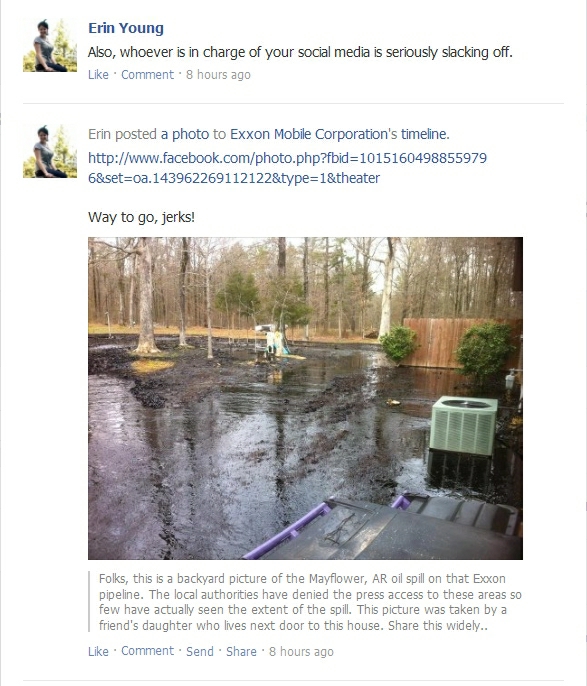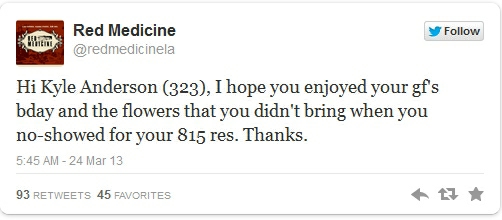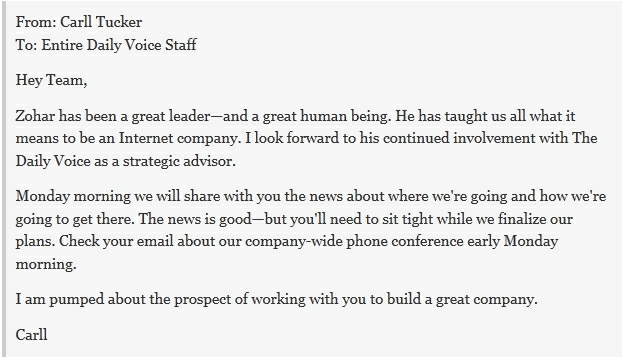Rutgers Coach Gets Terminated—and Apologizes
Rutgers basketball coach Mike Rice was terminated for abusive behavior towards his players. The decision was a surprise only because it came months after Rice's suspension from the university.
The videos of Rice's interactions with players are shocking: throwing balls at them, pushing them, and calling them homophobic slurs. But the university's decision last year was to suspend him, fine him $75,000, and send him to anger management classes.
Only recently-within a day after a video of Rice became public-did the university decide to terminate his employment.
Athletic Director Tim Pernetti is taking responsibility for the initial decision:
"I am responsible for the decision to attempt a rehabilitation of Coach Rice. Dismissal and corrective action were debated in December, and I thought it was in the best interest of everyone to rehabilitate, but I was wrong. Moving forward, I will work to regain the trust of the Rutgers community."
Rice did apologize in this video interview:
New Jersey Governor Chris Christie weighed in on the situation:
"Rutgers has done the right thing by firing Mr. Rice, but that still doesn't resolve questions about how he was allowed to continue overseeing college students after this behavior first came to the attention of Rutgers administration last year.
"I'm puzzled as to how anyone could think Mr. Rice was someone who should be representing our state university on a national level.
"I expect a full and detailed explanation from the Rutgers administration as to why Mr. Rice was not dismissed sooner and how exactly that decision was made. If answers aren't forthcoming, we are prepared to do what's needed to get them for the people of New Jersey."
Discussion Starters:
- What's your view of the athletic director's statement: a noble admission, poor showing for a bad decision, or something else?
- How do you assess Governor Christie's statement? Why would a state governor insert himself in this situation?
SEC Gives Guidance for Social Media Disclosures
Companies no longer have to wonder what is acceptable to disclose on social media sites. The SEC has set rules for how information may be disseminated on Facebook, Twitter, and other sites.
In the past, the SEC has been stringent on what companies can communication online. Because of Regulation Fair Disclosure (Reg FD), the SEC wanted to ensure that all investors have access to information at the same time, so that no one individual or group has an advantage in investing.
Now, the agency has softened its requirements. According to a New York Times article, companies can now post, with some restrictions:
"...companies could treat social media as legitimate outlets for communication, much like corporate Web sites or the agency's own public filing system called Edgar. The catch is that corporations have to make clear which Twitter feeds or Facebook pages will serve as potential outlets for announcements."
In a statement, the agency summarized the new rule:
"The Securities and Exchange Commission today issued a report that makes clear that companies can use social media outlets like Facebook and Twitter to announce key information in compliance with Regulation Fair Disclosure (Regulation FD) so long as investors have been alerted about which social media will be used to disseminate such information."
In other words, investors need to know a company's social media strategy-where information will be posted.
By most standards, the rules are long overdue. Companies such as Netflix have been investigated by the SEC for posting information on Facebook. The clarification will help companies use multiple channels to reach multiple audiences.
Discussion Starters:
- Read the SEC's statement. What else do you learn from reading "between the lines"?
- What questions or potential difficulties remain for companies deciding what, when, where, and how to post?
Exxon (Sort-of) Communicates Oil Clean-Up Efforts
Exxon is working triple time to manage the oil spill in Arkansas and communicate its efforts-but the company is missing the social media piece.
A pipeline breach caused thousands of barrels of oil to be unleashed into the water and 22 homes evacuated. Although a nearby lake was spared, the oil reached several residents' yards. The company says the cause of the spill is still under investigation.
The situation is reminiscent of the Exxon Valdez oil spill in 1989, when hundreds of thousands of barrels were spilled in Alaska. Of course no Exxon executive wants this link made too closely.
On its website, Exxon posted this response:
ExxonMobil Pipeline Company Responds to Crude Oil Spill in Arkansas
MAYFLOWER, AR – March 29, 2013– Cleanup operations were continuing at the site of a spill of crude oil near Mayflower, AR, ExxonMobil Pipeline Company said today.
An apparent breach in the Pegasus pipeline carrying crude oil occurred late Friday afternoon. The pipeline has been shut in and crews are working to contain the spill.
"We regret that this incident has occurred and apologize for any disruption and inconvenience that it has caused," said Karen Tyrone, southern operations manager of ExxonMobil Pipeline Company. "Our focus is on protecting health, safety and the environment. We will be here until the cleanup is complete."
Emergency response efforts are focused on ensuring community health and safety and keeping the crude oil from entering a nearby lake during cleanup.
Cleanup crews are using specialized equipment to recover oil. Additional resources are being mobilized to the area to assist with the cleanup response.
Air quality monitoring is being conducted in the impacted area.
The cleanup is being coordinated with the Department of Emergency Management and other local authorities. Notification to the Environmental Protection Agency and other agencies has taken place.
Members of the community who may be impacted or have questions can contact 1-800-876-9291.
The cause of the spill is under investigation.
The Pegasus pipeline is a 20-inch pipeline which originates in Patoka, IL and carries crude oil to the Texas Gulf Coast.
Customers have been notified and efforts are under way to minimize any potential impacts.
Since the initial announcement, Exxon has posted two updates:
- Cleanup Operations Continue (March 30)
- Update on Cleanup Operations (March 31)
A Facebook page for Exxon Mobile (misspelled) has critical posts but no voice of the company. If this isn't the company's page, then it should be removed, if possible.
Exxon has posted a few tweets, but only on April 3, a full five days after the spill on March 29.
Discussion Starters:
- What should Exxon communicate, if anything, on social media? How should the company address comments such as the one above?
- Assess Exxon's website statements. What works well, and what would you suggest changing in the three posted so far?
Restaurant Berates No-Shows on Twitter
Noah Ellis of Beverly Hills restaurant Red Medicine did what most owners would like to do but wouldn't dare: called out no-shows on Twitter.
After the public shaming, Ellis was unapologetic to the LA Eater:
"The a**holes who decide to no-show, or cancel 20 minutes before their reservation (because one of their friends made a reservation somewhere else) ruin restaurants (as a whole) for the people who make a reservation and do their best to honor it. Either restaurants are forced to overbook and make the guests (that actually showed up) wait, or they do what we do, turn away guests for some prime-time slots because they're booked, and then have empty tables."
To ABC News, Ellis seemed calmer and explained the impact that no-shows have on the restaurant:
"We're a small restaurant. You can see there's about 54 seats in the dining room. When you lose 20 people in that kind of peak time of the time it's inconsiderate to the other guests."
Ellis also admits that he was frustrated:
"The intent was never to focus on or draw attention to these specific people, it was more to put names to a problem to get some attention and get people discussing it."
Discussion Starters:
- How do you assess Ellis' approach: just desserts, over-the-top, or something else?
- How else can restaurant owners manage no-shows?
Emails Reveal Legal Bill Padding
Lawyers should know better than to send joke emails they want to keep private. Emails among attorneys at DLA Piper, the world's biggest law firm, have become public in a lawsuit about overbilling.
The suit is a counterclaim by an energy executive who has $675,000 in unpaid bills with DLA Piper. In the suit, Adam H. Victor accuses DLA Piper of inflating billable time by performing unnecessary tasks and taking too long to complete them with too many staff.
The emails seem to confirm his claims. Here are two examples, captured by The New York Times. In the first, an attorney says that "random people" were working on the case "for whatever reason" to "churn that bill, baby!"
In a second email, an attorney gloats about going $200,000 over the firm's estimate.
Discussion Starters:
- Describe what you perceive to be the working environment that supports these types of emails. In other words, what makes these acceptable-perhaps even encouraged?
- How do emails become public in such situations? Aren't they private-just sent to one or two people?
Ford Regrets "Distasteful" Ads
Ford is doing damage control after a PR firm created two ads showing a Figo truck with women tied up and gagged. In one ad, the driver is former Italian prime minister Silvio Berlusconi, in the other, Paris Hilton (with Kardashians in tow). The tag line for both ads is "Leave your worries behind with Figo's extra-large boot."
JWT India, the PR firm, admitted to creating the ads as mock-ups, or creative examples, without Ford's approval. Still, WPP, JWT's parent company repudiated the ads:
"We deeply regret the publishing of posters that were distasteful and contrary to the standards of professionalism and decency within WPP Group. These were never intended for paid publication and should never have been created, let alone uploaded to the Internet. This was the result of individuals acting without proper oversight and appropriate actions have been taken within the agency where they work to deal with the situation."
Although the company wasn't involved in the design, Ford submitted its own statement to explain the ads:
"We deeply regret this incident and agree with our agency partners that it should have never happened. The posters are contrary to the standards of professionalism and decency within Ford and our agency partners. Together with our partners, we are reviewing approval and oversight processes to help ensure nothing like this ever happens again."
Discussion Starters:
- Consider the view of JTW's creative team. What is possibly their defense of the ads?
- Assess the two companies' statements. In what ways did they handle the response well, and how could they have improved the response?
IRS Criticized for $60,000 Training Video
You would think that government agencies would learn the lesson that taxpayers don't like footing the bill for expensive training. About this time last year, the General Services Administration (GSA), which oversees purchasing and cost-cutting policies, was caught spending $822,000 at a conference in Las Vegas. Now, the IRS is being criticized for creating a $60,000 "Star Trek" parody video for leadership training.
When Miller refers to the "island theme," he means Gilligan's Island, of course.
Discussion Starters:
- What's your view of the IRS' video series: justifiable business expense, flagrant misuse of taxpayer dollars, or something else?
- What are alternatives for the IRS to get its points across? Could the agency use another approach for training on specific topics?
Twitter Turns 7
To celebrate its seventh birthday, Twitter produced a video to show its accomplishments and a few historic tweets.
Here are some stats about Twitter from 2012, of particular interest to business communicators:
- 56% of customer tweets to companies are being ignored.
- 32% of all Internet users are using Twitter.
- 34% of marketers have generated leads using Twitter.
The average age on Twitter is 37.3, according to Pingdom, compared to 40.5 for Facebook. As Twitter declines in average age, Facebook has increased-about two years in the past two years for each.
Discussion Starters:
- How do you use Twitter, if at all? What value do you see for you personally?
- What would inspire you to communicate with company via Twitter rather than Facebook or an online form?
BP Skirts Wikipedia Rules to Edit Content
 British Petroleum is accused of rewriting 44% of the company's Wikipedia entry, particularly about its environmental record. It's bad timing, as BP prepares for an April 5th federal hearing about potentially billions of dollars the company could owe in a class-action suit about the 2010 Gulf of Mexico oil spill.
British Petroleum is accused of rewriting 44% of the company's Wikipedia entry, particularly about its environmental record. It's bad timing, as BP prepares for an April 5th federal hearing about potentially billions of dollars the company could owe in a class-action suit about the 2010 Gulf of Mexico oil spill.
Although the contributor explains his interests on his Wikipedia user page, "Arturo" has more influence than people believe is appropriate. On his page, Arturo writes,
"I have established this account to help improve BP-related articles in line with Wikipedia standards and guidelines. In the interest of full transparency, I chose 'Arturo at BP' as my username so that my affiliation with BP is abundantly clear to all parties I may interact with on Wikipedia. Per WP:ORGNAME, I believe that this username is appropriate, and I should point out that I will be the only person to use this account.
"Out of respect for guidelines on conflict of interest and the importance of a neutral point of view, and in recognition of the ongoing debate regarding companies' involvement on Wikipedia, I will only be editing Talk pages and will not make any edits to encyclopedia articles. My primary goal in being active on Wikipedia through this account is to improve the overall quality of BP-related articles in line with Wikipedia guidelines."
True, Arturo does not directly edit Wikipedia pages about BP, but he does contribute content via his "Talk" page on Wikipedia. Apparently, this content is approved by BP executives. One logical concern is why Wikipedia editors are simply copying and pasting Arturo's entries.
On an editorial Wikipedia page, comments are flying about whether BP's actions are appropriate:
"A paid editor from BP is writing up material for the BP article and for the BP environmental section in particular.
"He does pay attention to the letter of the rules, but I don't think it is anywhere near the spirit, e.g. he checks with his higher-ups before responding to any questions."
Discussion Starters:
- What's your view of BP's contributions: fair play, crossing a line, or something else?
- How, if at all, does this news affect your image of Wikipedia as a reliable source?
Good Grammar Improves Job Prospects
A study by Grammarly examined 100 LinkedIn profiles and found that good grammar improved job prospects:
 "Professionals with fewer grammar errors in their profiles achieved higher positions.
Those who failed to progress to a director-level position within the
first 10 years of their careers made 2.5 times as many grammar mistakes
as their director-level colleagues.
"Professionals with fewer grammar errors in their profiles achieved higher positions.
Those who failed to progress to a director-level position within the
first 10 years of their careers made 2.5 times as many grammar mistakes
as their director-level colleagues.
"Fewer grammar errors correlate with more promotions. Professionals with one to four promotions over their 10-year careers made 45% more grammar errors than those with six to nine promotions in the same time frame.
"Fewer grammar errors associate with frequent job changes. Those who remained at the same company for more than 10 years made 20% more grammar mistakes than those who held six jobs in the same period. This could be explained in a couple of ways: People with better grammar may be more ambitious in their search for promising career opportunities, or job-hoppers may simply recheck their résumés between jobs."
One-hundred is a small sample size, but the results aren't surprising. In another survey, 11% of employers who checked applicants' social media posts did not hire them because of "poor communication skills." I might assume that included poor grammar.
Although few spelling mistakes were found on LinkedIn profiles, probably because of the spell-check feature, careless and grammatical errors could be a dealbreaker for your future employer.
Assignment Ideas:
- Review another student's LinkedIn profile. Do you find any errors? If so, how does this affect your opinion of him or her as a job candidate?
- Look at your Facebook page, if you have one. If you were a potential employer reviewing the page, what would be your impressions?
- Consider making changes to these sites and other social media spaces that employers may visit.
Is Yahoo!'s Hiring Process Too Long?
 Marissa Mayer, Yahoo!'s new CEO, is criticized once again. Recently, she made headline news for asking remote employees to work in an office. Now, her employees are taking issue with what they consider to be a long hiring process.
Marissa Mayer, Yahoo!'s new CEO, is criticized once again. Recently, she made headline news for asking remote employees to work in an office. Now, her employees are taking issue with what they consider to be a long hiring process.
Business Insider outlines her process, which includes teams of people interviewing each candidate and Mayer's final approval of every new hire. One employee complained to Business Insider, "It's a big waste of senior people's time to be sitting in all these interviews and generating all this paperwork & so on. And, teams suffer and productivity suffers while we endure the endless waits to bring people on."
Apparently, forms have to be filled out, and decisions can wait for weeks. Employees worry that Yahoo! is losing good candidates because offers aren't extended quickly enough.
But some of Mayer's requirements aren't unusual for technology companies. Google CEO Larry Page approves every hire, and Tim Page, AOL CEO, did the same when he first joined the company.
A little more control might be just want Yahoo! needs. Some say expenses are too high, and perhaps Yahoo! hasn't hired top talent in the past. Can we blame Mayer for acting like, well, a CEO?
Discussion Starters:
- As a job candidate, how long do you think the hiring process should take, from when you send your resume to when you receive a job offer?
- How would you handle a situation where you're waiting to hear from your first-choice employer and receive another offer?
MIT Media Lab SXSW Faux Pas
As the rest of us watch the snow fall, participants in the SXSW interactive festival in Austin are enjoying the technology, music, and general coolness of the event.
Festival mainstay MIT Media Labs surprised people with its promotional wristbands that many considered sexist. The bands were given to people who attended an MIT party.
In a blog post, the organization published this apology:
"We appreciate all of the feedback we've received about the party we hosted at The Parish Underground on Saturday night at SXSW. While we received a lot of positive responses, we want to address an issue with the wristbands that were given to people who came in the door. They were offensive and in no way reflect the sentiments of the MIT Media Lab. These wristbands were provided by the venue, and while we didn't realize what was printed on them until after they'd been handed out, we should have prevented the situation from occurring in the first place.
"The Media Lab is firmly committed to supporting women in the sciences, computing, arts, and engineering. We don't like – and certainly don't want to support or disseminate – offensive messaging. We appreciate those of you who noticed the wristbands and pointed them out to us; please accept our sincere apology."
Discussion Starters:
- What's your reaction to the wristbands: clever marketing, offensive, or something else?
- What's the significance, if any, of MIT Media Labs distributing the wristbands at SXSW?
- How do you assess the organization's apology?
Hyundai Apologies for Ad Capitalizing on Murdered Baby
Hyundai Motor Company has apologized for a social media post linking car safety to a murdered two-month-old baby. The baby was abducted from an SUV and then strangled and buried in the snow. Of course, people were horrified by the event and took to Weibo, China's microblogging site for consolation and updates.
A post on Hyundai's Weibo account referenced the new Santa Fe SUV's safety features. The company says it was posted by a non-employee and has since deleted the post:
"A few thoughts following the Changchun stolen car and child incident: When buying a car it's completely okay to choose brands with better technology. Tianhe Buicks carry the OnStar GPS system, which can track down the location of a stolen vehicle at any time and automatically report it to the police. Feel at ease, have peace of mind, if you're going to buy a car, why not choose a completely safe Buick!!!. Sales Hotline: 024-86547880 86547881 QQ:521279389 2523275273 www.inthbuick.com"
In an email to Bloomberg, Hyundai apologized:
"We pledge to be more vigilant in managing our social networking service accounts, while we send our deepest condolences to the victim's family. Hyundai Motor is a responsible corporate citizen that is not in the practice of taking advantage of tragic incidents."
According to Bloomberg, GM has been more reluctant to comment:
"Dayna Hart, a Shanghai-based spokeswoman for GM, which owns the Buick brand, said the U.S. automaker is monitoring the situation and isn't ready yet to comment."
Aside from the egregious overuse of exclamation marks, the post does what other brands have regretted: "newsjack"-take advantage of news for the purpose of sales. Some strategies work well, such as Oreo's tweet during the Super Bowl. But many others have failed because of poor taste and inevitable backlash.
Discussion Starters:
- What other companies have tried newsjacking and failed?
- If you were consulting for a company, what criteria would you identify to help the management team decide whether to hook into something trending on Twitter or Weibo?
Carnival Responds to More Ship Trouble
Generator trouble on Carnival Dream, docked at St. Maarten, caused a problem no company wants to explain: non-working toilets, the second publicized incident for Carnival within the past month.
A discrepancy seems to exist between passengers' accounts and Carnival's position. According to CNN, passenger Gregg Stark said,
"There's human waste all over the floor in some of the bathrooms and they're overflowing -- and in the state rooms. The elevators have not been working. They've been turning them on and off, on and off."
Jonathan Evans, another passenger, emailed CNN:
"We are not allowed off of the boat despite the fact that we have no way to use the restrooms onboard. The cruise director is giving passengers very limited information and tons of empty promises. What was supposed to take an hour has turned into 7-plus hours."
But Carnival posted this message on its Facebook page:
"We know there have been questions on the conditions onboard Carnival Dream last night and wanted to update you. We have had multiple conversations with the ship's management team. Based on the ship's service logs and extensive physical monitoring of all public areas, including restrooms, throughout the night, we can confirm that only one public restroom was taken offline for cleaning based on toilet overflow and there was a total of one request for cleaning of a guest cabin bathroom. Aside from that there have been no reports of issues on board with overflowing toilets or sewage. The toilet system had periodic interruptions yesterday evening and was fully restored at approximately 12.30am this morning."
Discussion Starters:
- CEO Gerry Cahill gave a press conference during the recent Triumph situation. If he were to give another conference, how should this one be different? What can Cahill do to rebuild trust in the Carnival brand?
- Trouble started during the last part of a seven-day trip. The company is reimbursing passengers for three days of the trip and is offering half off a future cruise. Carnival has been criticized for insufficient compensation in the past. Is this deal appropriate?
Weight Watchers Employees Weigh in on Compensation
Frustrated by big payouts for celebrity endorsers, Weight Watchers employees have taken to airing their complaints on a message board hosted by the company.
The New York Times published an article highlighting the pay gap. As one employee said, "They know my love for the program, but I can't say we're treated right. We are professionals, we have to dress nice, but we are paid less than kids who work at McDonald's." As celebrities Jessica Simpson and Jennifer Hudson collect millions of dollars for their endorsements, many Weight Watcher employees are paid minimum wage.
Company CEO David Kirchhoff, responded to employees' complaints: "One of our top priorities is to improve your working life at Weight Watchers, and in particular, the way we reward you for the incredible work you do."
On his blog, Mr. Media Training, Brad Phillips speculates about what Weight Watchers could have done differently:
"I couldn't help thinking that Weight Watchers could have helped prevent this story from bubbling up to the surface simply by moderating their site more carefully. Sure, nothing would have stopped employees from complaining on third party websites, but it would have been much more difficult for them to communicate without a central website to visit, especially because the workforce is diffused and decentralized."
Discussion Starters:
- Do you agree with Brad Phillips' assessment?
- What else could the company have done differently to prevent employee sentiment from becoming public?
- How else could the company have managed employees' communications?
Set Up for Disappointment at the Daily Voice
At the Daily Voice, a group of local-news websites, we see another example of how the indirect style is ill conceived in bad-news messages. Based on this Friday email, would employees expect layoffs on Monday? Carll Tucker is the company chairman, and Zohar Yardeni was the CEO, who recently resigned.
On Monday, the good news came: all 11 of the company's Massachusetts sites would be closed, and major layoffs would take place in Connecticut and New York.
Sounds like bad news to me.
Gawker offered this advice:
"...we would not advise applying for one of the Town Reporter positions currently posted on the Daily Voice's site. If the phone interview goes well, they'll bring you in the next day to punch you in the face."
Discussion Starters:
- What is a better approach for the news of layoffs?
- When is it appropriate to use the indirect style for bad-new messages?
Travel Blogger Thrown Off United Flight for Taking Pics
On a United Airlines flight from Newark to Istanbul, a passenger was asked to deplane after taking pictures of his seat and surroundings. A flight attendant asked Matthew Klint to stop using his camera, and pointed to this blurb in Hemisphere, United's in-flight magazine:
 According to Klint's version of events, he smiled at the flight attendant and stopped taking pictures. But, a while later, he did ask her to hang up his coat and continued the conversation:
According to Klint's version of events, he smiled at the flight attendant and stopped taking pictures. But, a while later, he did ask her to hang up his coat and continued the conversation:
"I want you to understand why I was taking pictures. I hope you didn't think I was a terrorist. Here is my business card [offering her one]. I write about United Airlines on an almost-daily basis and the folks at United in Chicago are even aware of my blog."
A Global Services representative then asked Klint to leave the plane: "The captain is not comfortable with you on this flight. You'll need to gather your things, and we'll find another way to get you to Istanbul." Klint then had a conversation with the captain, which you can read in Klint's blog post. During the conversation, the captain (apparently, not making eye contact) said that the flight attendant asked Klint to stop pictures, but he did not. Klint said, "Your FA is lying-I did not disobey any crewmember instruction." This continues to be a topic of debate.
Others on the flight seem to agree with Klint's telling of the story. In an NBC News article about the incident, Klint admits, "perhaps I should not have used the term ‘terrorist.'"
Klint has reported good contact with United, which is conducting an investigation. In the meantime, Klint has an interesting perspective on corporate apologies and says he doesn't expect one from United:
"At this point, United has not offered an apology and frankly I am not expecting one. An apology would reflect horribly on the pilot and FA and I do understand the delicacy of corporate apologies in general. United did express an appreciation for my loyalty and a desire to see me continue to fly on the carrier."
Well, Matthew, there are many types of apologies.
Discussion Starters:
- Based on Klint's version of the story, did United do the right thing? Could the airline have done anything differently?
- We haven't heard much from United yet. What could be the airline's position?
- How could United apologize without reflecting "horribly on the pilot and FA," as Klint says?
Arguments for Remote Workers
The buzz after Yahoo!'s come-to-the-office email hasn't died down yet. Business Insider has jumped on the critic-wagon, suggesting that Yahoo! take an approach similar to Google's.

In an article with the descriptive title, "Marissa Mayer Should Have Used Google's Excellent Argument To Bring Remote Workers Back," Business Insider reminds us that Google was Marissa Mayer's employer before she joined Yahoo!. Although she may have been inspired by the Google culture to encourage remote employees to come to the office, she missed some of the obvious persuasive arguments, according to writer Max Nisen.
Nisen highlights two differentiators between Yahoo!'s recent message and how Googlers are encouraged to and rewarded for coming to the office. In addition to emphasizing the "magical moments" that Google employees share when they are in the same space, Google offers significant benefits for employees to be in the same physical location: "great food, amazing offices, and great amenities."
Nisen also suggests that Yahoo! could sell the tax benefits to employees, particularly how the benefits save employees money. Perks offered in the office are considered fringe benefits and are not taxable income. He points to DealBook's Victor Fleischer's assessment of the tax benefits of working in an office:
"Suppose Abe works at Yahoo, makes $150,000 a year and is taxed at an effective 33 percent rate, thereby paying $50,000 in taxes. Bridget, by contrast, makes $120,000 and also enjoys $30,000 of untaxed fringe benefits.
"Bridget's tax liability is only $40,000 (33 percent of $120,000), meaning that she pays $10,000 (or 20 percent) less in taxes, yet received the same economic compensation as Abe."
Yahoo! could have done a better job of communicating its message. This could have saved some backlash for the company and perhaps have clarified the intent-and the benefits-of having employees come to an office.
For more about the benefits and challenges of remote workers, read Cornell ILR's summary.
Discussion Starters:
- How, if at all, do you think this suggested approach would have helped Yahoo! with the initial announcement?
- Other than the initial response of "This isn't a broad industry view on working from home. This is about what is right for Yahoo right now," we have heard little from Yahoo! since the controversy. What, if anything, should the company say at this point?
Study: How Twitter Sentiment Compares to Public Opinion
We should be careful about drawing conclusions about overall public opinion based on tweets, according to a recent Pew study. Sometimes reactions on Twitter are more politically liberal, while at other times, they are more conservative. Often, they are more negative.
For example, when a California law last year banning same-sex marriage was found to be unconstitutional, Twitter conversations were much more positive (46%) than negative (8%). These results contrast sharply with a general opinion poll showing 33% to be positive and 44 to be negative.
Reactions to the presidential election also ran more positively on Twitter, with most users supporting President Obama. However, reactions to the president's State of the Union address were far more negative on Twitter than in the general population.

One explanation of these differences and inconsistencies is the small percentage of people who get news from and participate on Twitter. Only 13% of adults read Tweets, and only 3% regularly or sometimes tweet or retweet news. Users are not a representative sample of the U.S. population; for example, Twitter users include those under 18 and people outside the United States, while opinion surveys exclude both groups.
Discussion Starters:
- What else could account for more negativity on Twitter?
- Research Twitter demographics. What, if any, other conclusions can you draw about its users?
Yale Sex Survey Debunked
Who can resist a compelling headline? "Nine Percent of Yale Students Surveyed Say They've Accepted Money for Sex," an article in The College Fix, didn't give us the full picture. Skeptics might ask questions such as, "Who was surveyed and under what conditions?" and "How many people were included in the sample?"
As it turns out, the survey was taken during a "Sex Weekend" workshop for participants to "learn about masochistic sexual practices such as those depicted in 50 Shades of Grey," according to a Yale Daily News reporter. Does this group represent the typical Yale student?
How many students at the workshop completed the survey is unclear. The Yale Daily News reports that 55 students attended the workshop, but Business Insider claims that only 40 students were asked to complete the survey. Using Business Insider's numbers, four students said they were paid for sex.
Bottom line: Don't believe everything you read.
Discussion Starters:
- What would be a better way to administer a survey to Yale students to get a more representative sample? What categories of students would need to be included?
- How many responses would you consider before making a claim about students' sexual behavior?




























